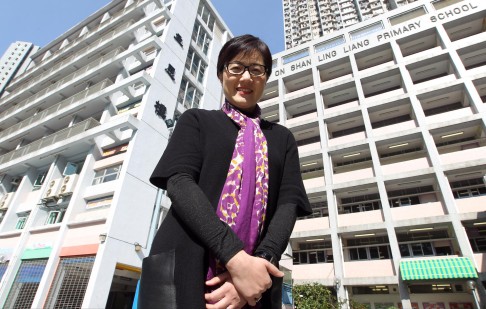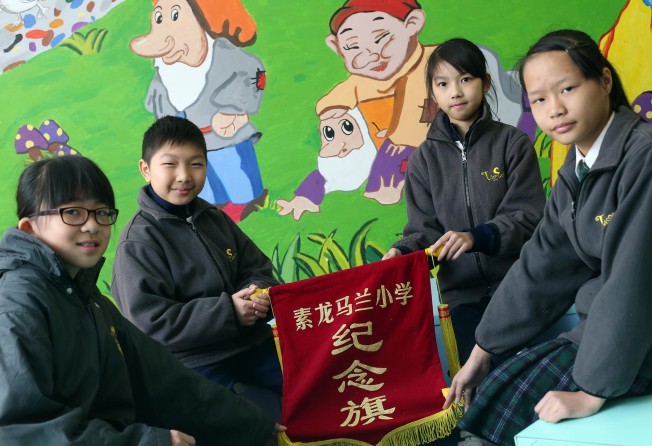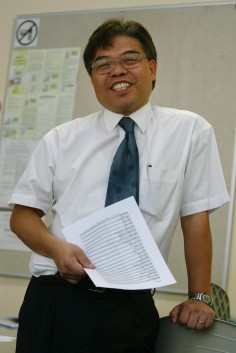
Teachers and parents say 'hidden agenda' behind Hong Kong-China exchange trips
As the government pumps more money into subsidies, parents and teachers take a more critical approach to mainland visits

It was three years ago, but 18-year-old Chick Yue-hong still cannot shake off the memory of the depressing feeling, the murder weapons and the victims' bones.
"The atmosphere was heavy and sorrowful," recalls the Form Six student of Heung To Secondary School (Tseung Kwan O).
He and his schoolmates were visiting a memorial hall in Nanjing for the victims of the 1937 massacre by Japanese troops in the eastern mainland city. About 100 pupils from his year attended the five-day programme to Nanjing and Shanghai organised by his school.
The Heung To Secondary School, regarded as patriotic and run by pro-establishment figures, conducts such trips annually for its junior students. The excursions include a four-day military training camp in Shenzhen for all Form One students at the Whampoa Youth Military Training School. Form Two and Three students visit other mainland cities.
Most such visits by Hong Kong schools are funded by the government with students paying only a token sum to join. In the 2013-14 financial year, the government spent at least HK$87.4 million sponsoring mainland exchange, tour and internship programmes for primary, secondary and post-secondary students. This financial year, the estimated amount has increased by 38 per cent to HK$121 million and about 126,200 students have received such subsidies.
Last month, Chief Executive Leung Chun-ying promised to do more to enhance the schemes, including introducing a new plan for a so-called "sister school scheme".
Some HK$190 million has been set aside for it over three years from the next financial year. Each year, a school that joins the scheme to form long-term exchange partnerships with a mainland counterpart will receive HK$120,000.
The budget is due to rise to at least HK$269 million by 2017-18 - more than double the amount being currently allocated.
The moves have stoked fears in some quarters that the government is surreptitiously reviving the controversial national education curriculum.
The curriculum was attacked as Beijing's attempt at "brainwashing" and was ultimately shelved in 2012 after widespread protests led by students.
But many students who have gone on exchange programmes believe that the trips are harmless and that several days of travelling cannot change what they have learned in school.
Some parents, even if they question the motivation behind the exchanges, also say they would not object to their children joining such trips.
A not-so-hidden agenda?
Chick recounts that when he and his schoolmates were on tour buses, their guides told them how the mainland had been developing fast. When the bus crossed the sleek, modern Yangtze River bridge near Shanghai, the guides told them about the advanced technology behind the 12.6 billion yuan (HK$15.6 billion) project.
"It was like they wanted you to love the country more," says Chick.
Another Hong Kong student, Eren Chak Chun-wai, 13, toured the mainland twice when he was in primary school. In 2011, he and his schoolmates visited Kaiping and southern Guangdong during a three-day trip. They did exchange activities with pupils at a local school, joined their classes and were taken to historic sites in the area. "When we visited these old buildings, the guides told us what Chinese leaders did during the revolutionary wars, the good deeds they had done and how great they were," said Chak, now a Form Two student in a Wan Chai school. "They didn't explicitly ask you to be patriotic, but they wanted the idea to seep into you."
This is precisely the reason that Donna Ng, a 53-year-old clerk in an architectural firm, does not want her daughter, a Form Six student at a secondary school in North Point, to join any of the mainland exchange activities. "We are lucky that her primary and secondary schools never required her to join these trips," said Ng. "Even if she was asked to, we would definitely not let her go, because we can't see how this can help her. These trips are all single-mindedly trying to brainwash young people."
Ng added that to truly understand China, students do not need to join such structured school trips. Parents, she said, can take them to the mainland or they can go and explore on their own when they are older.
Suspicions over the strengthening of the exchange schemes have heightened because of the timing of Leung's announcement last month, coming so soon after the end of the Occupy movement's street protests.
It also seemed like no coincidence that a retinue of mainland officials and scholars came over one after another to criticise Hong Kong's education system. Leung's address came less than a week after a former deputy director of the State Council's Hong Kong and Macau Affairs Office, Chen Zuoer, issued a stern reminder that the Hong Kong education minister should "correctly guide" schools under the supervision of the central government.
Chen, who is now the chairman of the semi-official think tank, Chinese Association of Hong Kong and Macau Studies, said the local education system had to take responsibility for nurturing "poisonous beans" who, though many were born around or after the handover, still brandished the colonial flag and identified little with China.
A day before Chen's remarks, Rao Geping, a Basic Law Committee member and law professor at Peking University, said the government should reintroduce national education to Hong Kong schools.
"This is a top-down approach to push national education in Hong Kong," said Civic Party lawmaker Dr Kenneth Chan Ka-lok.
"The last time the attempt to introduce national education met its Waterloo, so this time the government is using public resources to push it via various mainland exchange programmes."
Other parents and students, however, believe that as long as young people learn about the mainland objectively in Hong Kong, the trips can be useful.
Mary Cheung Yee-ki, a 10-year-old pupil at Lions Clubs International Ho Tak Sum Primary School in Tin Shui Wai, visited her school's "sister school" in Luoding in western Guangdong last April with all the other pupils in her year.
During the three-day visit, they learned and played with the Luoding schoolchildren and helped them learn English. They also visited a rice processing factory, a local history museum and ancient temples.
"We had a lot of fun," said Cheung. "People there were very polite and hardworking. I really appreciated that."
She added the trip made her appreciate Hong Kong's education because here pupils learn through different activities and discuss and even argue in class, while there the children just listened to their teacher and did not express contrary views.
"We didn't only see the good side of the mainland during the trip," she says. "The place we visited was actually quite poor. Students there ran around barefoot."
Chan Kwok-keung, whose daughter is in her third year of primary school, said he will let her join these trips and discuss the experience with her on her return. "Controlling ideology has always been the Communist Party's way of doing things, but I don't believe several days of travelling can brainwash the children, because Hong Kong has deep-rooted values and an open system. We don't buy one-way feeding of ideas," he said.
He feels however that the programmes are "a waste of public money" if the intention is to make children more patriotic rather than to educate them.
Education, not propaganda
Dr Ng Shun-wing, head and associate professor of the Institute of Education's Department of Education Policy and Leadership, said as Chinese, Hong Kong students should know their country's history and culture, just as Americans need to learn about American history.
He believes the exchange trips are necessary as a part of the learning history - but thinks they should not be tailored to fit the government's political needs. "Exchange trips should not be organised with political purposes," said Ng.
"I hope these trips can encourage students to understand China's history, culture, economy and politics critically, instead of feeding students biased information."
Some principals believe that schools can shape the agenda and must arrange the trips so that students truly benefit.
Sylvia Chan May-kuen, principal of Ma On Shan Ling Liang Primary School, said she has always required her pupils to pack their own bags, serve food, wash pots and pans and look after one another during the trips, to help learn independence. She also picks destinations that will enable the visits to have a theme such as environmental protection, arts or history.
"Students can't just learn in classes, they need opportunities to leave the classes and explore the world," she said. "The key is how we can make the trips meaningful."
Yip Wai-ming, principal of St Louis School in Sai Ying Pun, said his school has been selecting trips carefully and avoiding joining some programmes, including those entitled, "Passing on the torch: the national education exchange programme sponsorship scheme", "Understanding our motherland programme" and "National education exchange programme on the mainland for senior secondary students".
"These programmes are not very attractive to us because we feel there is not much meaning in those," he said. "The most important thing is how beneficial the trips are to students."
